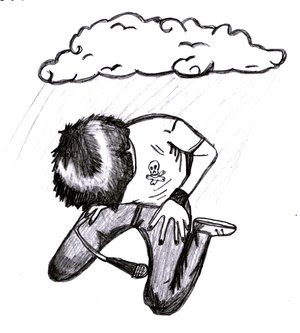
Screamo is a genre of music which evolved from hardcore punk and emo in the early 1990s. The term "screamo" was initially applied to a more aggressive offshoot of emo that developed in San Diego in 1991, which used short, chaotically executed songs which grafted "spastic intensity to willfully experimental dissonance and dynamics, often with a political message. In the early 2000s, the genre name began to describe a different, slower and less dissonant style that borrowed from alternative rock, most notably in a 2003 New York Times article. The term's application to the "second wave" is controversial among fans and practitioners of the earlier style. One musician observed that the term "has been kind of tainted in a way, especially in the States".
Many first-wave screamo groups saw themselves as implicitly political, and as a reaction against the turn to the right embodied by California politicians, such as Roger Hedgecock. Some groups were also unusually theoretical in inspiration: Angel Hair cited surrealist writers Antonin Artaud and Georges Bataille, and Orchid lyrically name-checked French new wave icon Anna Karina, philosopher Friedrich Nietzsche, and critical theory originators the Frankfurt School.
First-wave screamo uses typical rock instrumentation, but is notable for its brief compositions and chaotic execution. It has been described, by music journalist Jason Heller, as "graft[ing] spastic intensity to willfully experimental dissonance and dynamics, indicating a kinship with noise rock. Later groups sometimes included synthesizers and other electronic sounds.
Second-wave screamo typically makes use of dual guitars and eschews guitar solos, and is most identifiable by its "frequent shifts in tempo and dynamics and by tension-and-release catharses. Unlike the first wave of screamo, these bands often compose ballads. Second-wave screamo has been described as "mixing the literate, poetic lyrics of hardcore punk with a harsher and more metallic brand of sonic thrash as well as using screaming vocals "as a kind of crescendo element, a sonic weapon to be trotted out when the music and lyrics...reach a particular emotional pitch.
Indie Kita
From Wikipedia
No comments:
Post a Comment